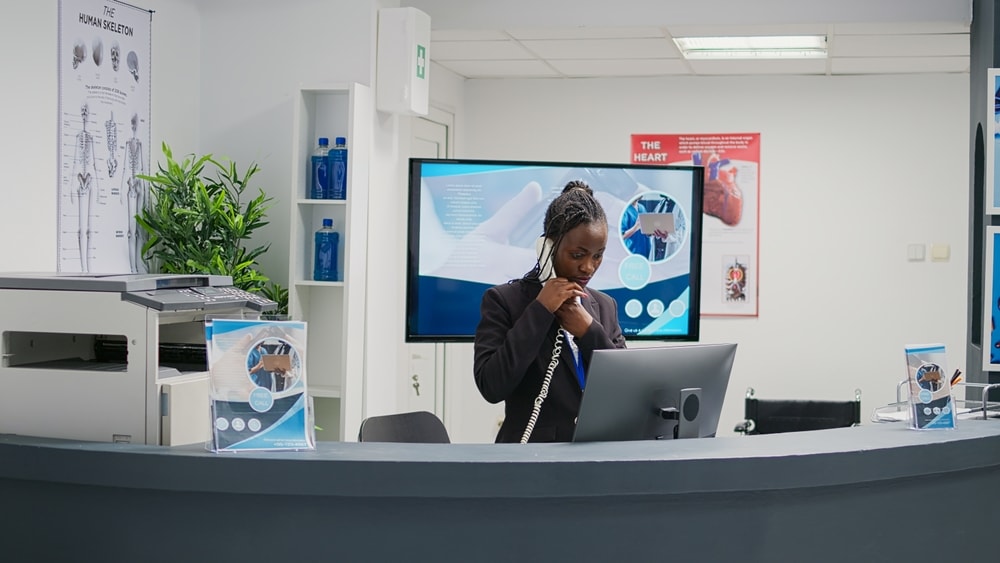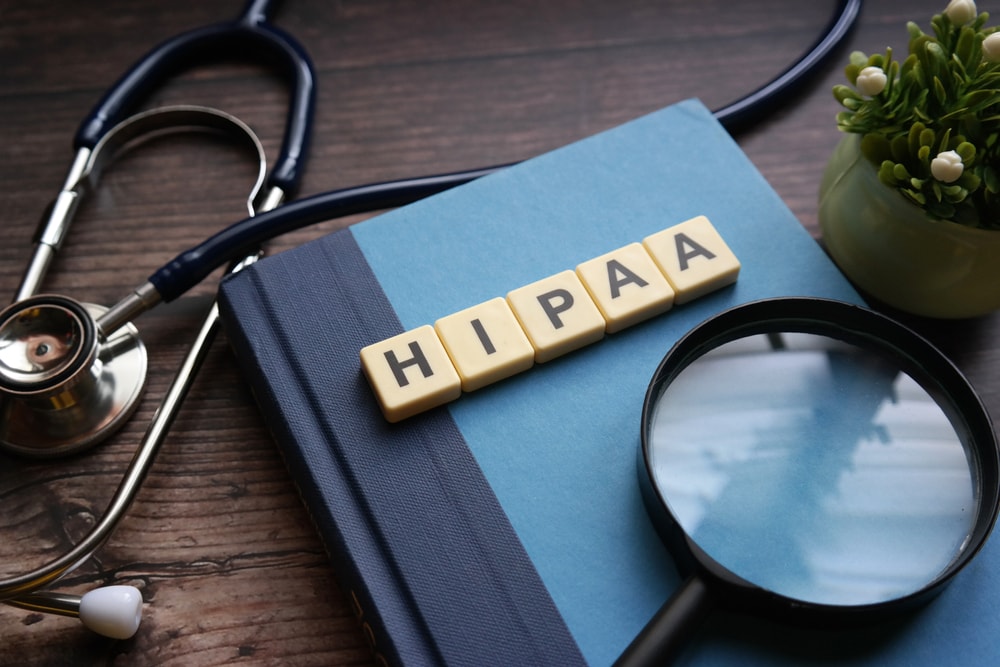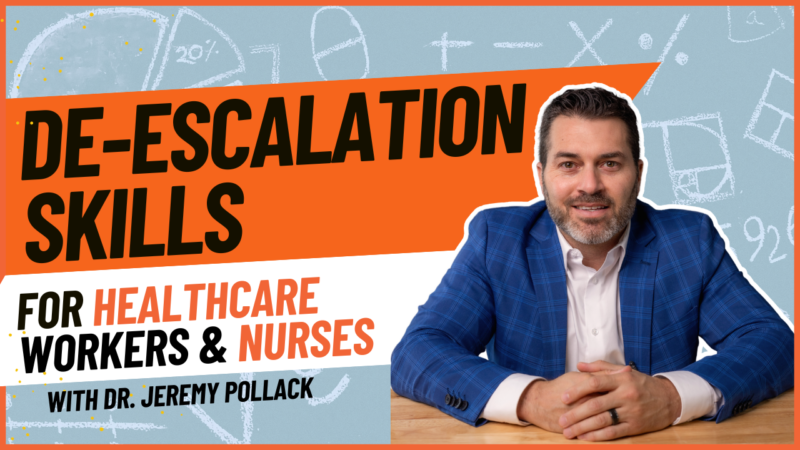Table of content
Healthcare call centers are pivotal in delivering exceptional patient care by bridging the gap between healthcare providers and their patients. With satisfaction playing an increasingly significant role in healthcare outcomes and organizational reputation, the strategies employed by healthcare call centers have become a focal point for improvement.
From managing difficult calls to implementing personalized service, healthcare contact centers can dramatically impact patient experiences. Below, we explore some healthcare call center best practices to enhance operational efficiency and ensure high patient experience.
Techniques for Managing Difficult Calls
Handling angry customers is one of the most challenging yet essential tasks for any healthcare call center. These moments often define the patient’s perception of the organization and its commitment to patient care.
The following techniques are invaluable for creating positive outcomes in such situations.
1. Active Listening
Active listening is at the core of effective communication. It involves more than hearing what the patient is saying-it requires understanding their concerns and validating their emotions. Shorter average response times correlate with better patient experiences, but the key differentiator is the ability of agents to actively listen and respond empathetically to patient concerns.
Active listening enables agents to identify the root cause of a patient’s frustration, whether it is a delayed appointment or a billing error. For example, using verbal cues such as “I understand” or “Let me ensure this is resolved for you” can immediately create a more positive atmosphere. Incorporating this technique into every interaction helps healthcare organizations exceed patient expectations and foster trust.
2. Clear Communication
Clear communication is essential for avoiding misunderstandings and ensuring patient inquiries are resolved efficiently. One case study conducted in 2015 analyzed malpractice risks stemming from communication breakdowns in a healthcare contact center. It found that miscommunication contributed to 30% of malpractice cases, with provider-to-patient errors being particularly prevalent. These findings highlight the importance of precision in healthcare-related conversations, making clear communication a key aspect of healthcare call center best practices.
For example, agents should use straightforward language when explaining appointment procedures or medication instructions. Avoiding jargon and ensuring that patients fully understand the next steps reduces anxiety and demonstrates professionalism. This approach is particularly important when addressing complex inquiries such as insurance claims or medical test results.
3. Empathy
Empathy is a cornerstone of effective communication in a healthcare call center, especially during stressful situations. A 2013 systematic review published in the British Journal of General Practice examined the impact of physician empathy on patient outcomes.
The review found that empathy significantly contributes to satisfaction among patients, adherence to treatment plans, and overall clinical outcomes. Specifically, empathetic interactions were associated with reduced patient anxiety and distress, leading to better diagnostic and therapeutic results.
In the context of a healthcare call center, an agent who expresses empathy through attentive listening, compassionate language, and understanding tones can effectively de-escalate conflicts and address patient concerns.
For instance, acknowledging a patient’s frustration by saying, “I understand how this situation could be frustrating, and I am here to help,” can foster trust and facilitate a more productive conversation. Implementing empathy in patient interactions aligns with best practices aimed at enhancing satisfaction and improving overall healthcare experiences.
4. Acknowledging Patient Concerns and Offering Solutions
Acknowledging patient concerns is not just about validating their feelings but also about taking proactive steps to resolve the issue. Satisfaction increases when call center agents actively engage in solution-oriented dialogue. This means acknowledging the problem, providing a clear explanation, and offering actionable steps to resolve the issue.
For example, if a patient is frustrated about conflicting appointment schedules, the agent should first acknowledge the inconvenience and then check for the earliest available slot. Clear communication and a willingness to help create a sense of reliability and professionalism, which enhances the patient’s perception of the organization.

Best Practices for Calm and Productive Communication
Effective communication in healthcare contact centers is about more than just exchanging information. It is about ensuring that every interaction leaves the patient feeling heard and valued. By implementing the following strategies, a healthcare call center can create an environment conducive to calm and productive exchanges.
5. Use of Calm, Professional Tone Throughout Calls
The tone of voice sets the stage for the entire conversation. A calm, measured tone conveys confidence and professionalism, which is particularly important when dealing with patient concerns. Maintaining a consistent tone when de-escalating customer calls is a cornerstone of successful healthcare call center best practices.
For example, instead of reacting defensively to a patient’s complaint, an agent might respond with, “I understand how this situation could be frustrating. Let us see how we can make it right.” Such responses demonstrate a commitment to delivering exceptional patient care while maintaining professionalism.
5. Structuring Conversations for Clarity and Efficiency
Structure is crucial for avoiding confusion and ensuring that calls are resolved efficiently. Agents can follow a three-step process:
- Greet the patient warmly
- Identify the issue
- Provide a clear resolution plan
For instance, agents might say, “Thank you for calling. Let me confirm your details to better assist you. What issue are you experiencing today?” This clear structure reassures the patient and keeps the conversation focused.
7. Balancing Automation with Personalized Service
Automation tools like interactive voice response (IVR) systems and AI-powered chatbots are invaluable for managing fluctuating call volumes in healthcare contact centers. However, they must be balanced with personalized service to avoid alienating patients.
For example, while an IVR handles initial inquiries, more complex issues should be routed to a live agent who can offer a personal touch. This balance ensures operational efficiency without compromising the patient experience among healthcare providers.
Personalized Service
Personalization is one of the most effective ways to create meaningful connections with patients in a healthcare contact center. By tailoring interactions to individual needs, healthcare contact centers can significantly enhance patient engagement and loyalty.
8. Addressing Patients by Name and Referencing Their History
Using a patient’s name and referencing their medical history during calls demonstrates attentiveness and care. For instance, an agent might begin a “Good morning, Mr. Smith. I see you had an appointment with Dr. Johnson last week. How can we assist you today?”
This level of detail reassures patients that their concerns are understood and prioritized and can lead to increased patient satisfaction scores in a healthcare contact center.
9. Quick Access to Patient Records to Enhance Interaction
Timely access to accurate patient records is essential for providing exceptional patient care. A 2016 systematic review published in the Journal of Medical Systems found that electronic health records (EHRs) improve healthcare quality by enabling timely access to patient data, reducing medical errors, and enhancing communication between healthcare providers and patients.
These findings emphasize the value of integrating EHRs into contact center operations to streamline interactions and improve outcomes. This integration allows call center agents to quickly retrieve relevant information, which can reduce hold times and improve the quality of interactions.
For example, if a patient calls to discuss test results, the agent can immediately access the relevant data and provide accurate, timely answers. Such efficiency not only enhances the patient experience but also demonstrates the organization’s commitment to professionalism and operational excellence.

Continuous Training and Feedback
Continuous training is critical for ensuring that call center agents remain effective and adaptable in their roles. By investing in regular training programs and feedback mechanisms, healthcare call centers can maintain high standards of service.
10. Ongoing Training to Refine Communication Skills and Stay Current
Training programs should be designed to enhance both technical knowledge and soft skills. Customer service training games and activities, for instance, can help agents practice scenarios they are likely to encounter. Healthcare contact centers that implement continuous training can see improved performance metrics, including reduced call handling times and increased patient satisfaction scores.
Agents should also receive updates on HIPAA regulations, medical terminology, and emerging technologies. This ensures they are equipped to handle the evolving needs of patients and the healthcare industry.
11. Role-Playing and Feedback Loops for Improvement
Role-playing exercises, combined with regular feedback sessions, are among the most effective tools for skill development. Feedback loops further enhance these efforts by identifying improvement.
For instance, call recordings can be analyzed to pinpoint gaps in communication or areas where empathy could be improved. Regular feedback not only boosts individual performance but also contributes to the overall success of the healthcare organization.
The Role of De-escalation Training
Effective de-escalation training is a cornerstone of healthcare call center best practices. It equips agents with the tools to navigate high-pressure situations while maintaining professionalism and empathy, highlighting the benefits of de-escalation in the healthcare industry.
Calls involving heightened emotions, such as frustration or fear, are common in healthcare call centers. Proper training ensures these interactions lead to positive outcomes, fostering trust and satisfaction in healthcare.
12. De-escalation Training in Managing High-Stress Calls and Reducing Patient Frustration
De-escalation techniques are critical in mitigating the intensity of high-stress calls. While strong evidence directly linking de-escalation training to measurable outcomes is limited, research highlights its importance in enhancing staff confidence and perceived safety during challenging interactions.
A 2023 study by Brenig et al., published in BMC Psychiatry, reviewed the effectiveness of de-escalation training in forensic psychiatric settings. The study found that healthcare professionals who underwent de-escalation training reported increased confidence and competence in managing high-stress interactions, leading to a reduction in the use of restrictive interventions.
For example, an agent trained in de-escalation might respond to an irate patient by calmly acknowledging their frustration: “I understand this is a difficult situation for you, and I am here to help.”
Such phrases, combined with active listening, demonstrate empathy and provide immediate reassurance, reducing the likelihood of escalations. This aligns with the goals of healthcare contact centers, where every call represents an opportunity to build trust and provide exceptional patient care.
Improves Patient Satisfaction and Reduces Escalated Issues
De-escalation training is not just about handling difficult situations with customers-it is a critical component of enhancing patient experience in a healthcare contact center. By equipping agents with the skills to address conflicts efficiently and professionally, healthcare contact centers can create more positive interactions. This training helps agents respond calmly and empathetically, reducing the likelihood of escalations and fostering a sense of trust and reliability among patients.
Moreover, reducing escalated issues has operational benefits. By resolving concerns during the initial interaction, call center healthcare professionals improve metrics such as first-call resolution (FCR) and reduce the need for follow-up calls. These improvements not only enhance the patient experience but also boost the overall efficiency of contact center operations.

HIPAA Compliance
In the healthcare industry, protecting patient privacy is not just a regulatory requirement-it is a fundamental aspect of building trust. Compliance with HIPAA (Health Insurance Portability and Accountability Act) ensures that a healthcare call center handles sensitive patient information securely while maintaining the highest standards of service.
13. HIPAA Compliance in Protecting Patient Information While Delivering Excellent Service
HIPAA compliance involves strict protocols to safeguard patient data. This includes securing EHRs, encrypting communication channels, and restricting access to authorized personnel.
For example, when accessing a patient’s records to answer a billing query, an agent must ensure that the information is shared only with the verified patient. This careful balance of security and service delivery reassures patients that their health records are protected, fostering confidence in the organization.
Ensuring Secure Handling of Sensitive Data
Secure handling of sensitive data extends beyond compliance-it is integral to call center best practices. Regular training sessions on HIPAA requirements, combined with real-world scenarios, equip agents to handle sensitive patient information responsibly.
For instance, agents must know how to verify patient identities without compromising privacy. Asking for unique identifiers, such as the last four digits of a Social Security number, ensures secure interactions. These practices reflect a commitment to safeguarding patient rights while maintaining operational efficiency.
Measuring Success
To continuously improve healthcare contact center operations, it is essential to measure success through actionable metrics. Tracking key performance indicators (KPIs) such as satisfaction scores and utilizing feedback loops enable organizations to refine their strategies and enhance service quality.
14. Tracking Patient Satisfaction Scores (CSAT) and First-Call Resolution Rates
Patient satisfaction scores (CSAT) and first-call resolution (FCR) rates are among the most critical metrics for healthcare call centers. High FCR rates reflect the ability of agents to resolve patient concerns during the first interaction, minimizing the need for follow-ups. This efficiency not only enhances the patient experience but also demonstrates the organization’s commitment to addressing needs effectively.
Tracking CSAT scores provides valuable insights into how patients perceive the quality of service, enabling organizations to identify strengths and areas for improvement. Together, these metrics serve as a benchmark for success, guiding contact center operations toward higher performance and improved patient outcomes.
15. Regular Use of Feedback and Call Analytics for Improvement
Call analytics play a vital role in evaluating and improving contact center operations. Advanced tools can analyze trends such as call volumes, agent response times, and sentiment during interactions. For instance, speech analytics software can detect frustration in a patient’s tone, prompting management to address the root causes of dissatisfaction.
Additionally, feedback loops involving both patients and agents foster a culture of continuous improvement. Patients’ input, gathered through post-call surveys, highlights specific concerns, while agents’ feedback identifies operational challenges. Implementing changes based on these insights ensures that healthcare organizations remain responsive to evolving patient needs.
Partner with Defuse to Elevate Patient Satisfaction
Satisfaction in healthcare is not just a metric-it is the cornerstone of success in the healthcare industry. At Defuse De-escalation Training, we specialize in empowering healthcare call centers with the tools and strategies needed to excel.
Let us help you achieve excellence. Contact Defuse today to transform your healthcare call center into a hub of exceptional patient care. Together, we can set new standards for healthcare call center best practices and ensure that every patient interaction reflects the quality and professionalism your organization represents.




